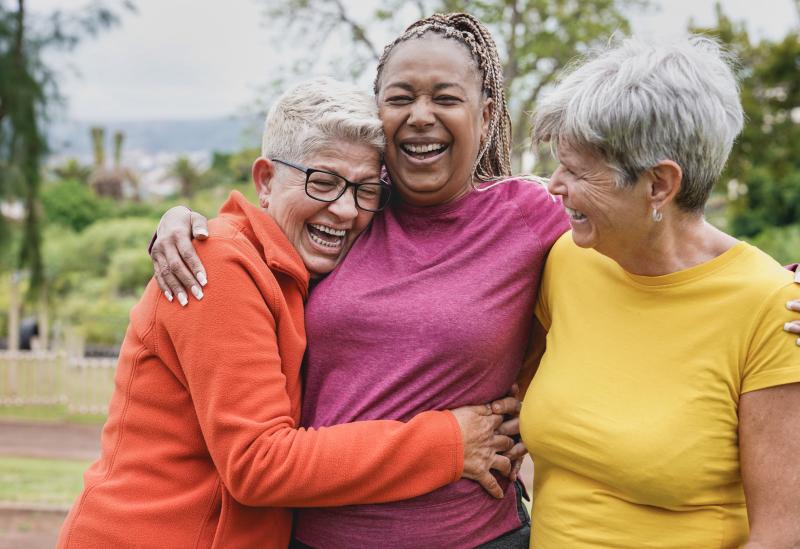When most people think about leaving a legacy, they immediately consider their financial assets: the house, the bank account, the jewelry passed down through generations. While these tangible items are indeed important, legacy planning encompasses much more than just the transfer of wealth. A true legacy is the collection of values, memories, and life lessons you leave behind for your loved ones.
Legacy is what others remember about you, the way you shaped their lives through your actions, your character, and the love you shared. It’s the memories you intentionally create with those you care about and the values you instill in them. With that in mind, a comprehensive legacy plan should cover both the legal aspects of your estate and the emotional and familial connections that will live on after you.
Legal Foundations: Powers of Attorney, Health Care Directives, and Trusts
While creating memories and passing on values is crucial, it’s critical that your wishes regarding your health care, finances, and property are clear, well-organized, and legally binding to reduce confusion and stress for your loved ones in times of need.
- Powers of Attorney (POA): A Power of Attorney is a legal document that designates an Agent(s) to make legal and financial decisions on your behalf. Of the most important legal documents that any adult can have for themselves, the Power of Attorney can be especially important while supporting a loved one during a need for long-term care.
- Advance Health Care Directives: An Advance Health Care Directive allows you to outline your wishes for medical care if you cannot express those wishes for yourself. This document captures your choice of an Agent(s), expresses your wishes for life sustaining treatment, and provides directions regarding organ donation. Consider this document a gift for your loved ones, so that they can follow instructions at the end of your life, rather than guessing what your wishes are.
- Revocable Living Trust: A Revocable Living Trust is replacement for a traditional Will. This legal document captures your end-of-life wishes, acts as a backup incapacity tool during life, and avoids the probate process making it easier to manage and administer your affairs after death. Trust makers retain full control of the Trust, Trust assets, and ability to modify the language within.
- Irrevocable Asset Protection Trust: While an Irrevocable Asset Protection Trust also avoids probate, this trust is added to a foundational estate plan with the goal of protecting some assets from the future possibility of long-term care costs, like care at home or care in a nursing home.
Having these documents in place provides a legally binding plan, giving your family peace of mind knowing that your wishes are clearly outlined and enforceable. However, a true legacy goes beyond just securing your estate; it’s about the intangible gifts you give to those around you.
Leaving a Legacy of Good Health
One often overlooked aspect of legacy planning is health—specifically, leaving a legacy of good health to your loved ones. Our lifestyle choices and habits shape not only our lives but also those of the people around us. By living well and sharing the importance of health with others, you can influence future generations in ways that last far longer than any material gift.
- Nutrition: Healthy eating habits can have a profound impact on your legacy. The recipes passed down in your family, the food traditions you uphold, and the nutritional wisdom you share can benefit future generations. Think about how your favorite meals—perhaps those cherished dishes made by your grandparents—can be made healthier without losing their essence. Teaching your children or grandchildren about balanced nutrition, meal planning, and cooking skills ensures they carry this knowledge forward.
- Exercise and Active Lifestyle: Regular physical activity is one of the most important factors in maintaining good health. By modeling an active lifestyle, you show your loved ones the importance of taking care of their bodies. Whether it’s hiking together, taking family walks, or playing sports, staying active creates memories that encourage healthier habits. Engaging in physical activities as a family not only keeps you fit but also strengthens emotional bonds, forming a legacy of health and wellness.
- Preventative Health: Just as you teach your children about the importance of regular exercise, it’s vital to instill habits that promote preventative health care—such as regular doctor visits, screenings, and maintaining mental health. A proactive approach to health can add years to your life and leave your loved ones with the knowledge and example to take care of their own well-being.
Building Memories Through Intentional Family Activities
Another powerful way to leave a legacy is through the intentional creation of memories with your loved ones. While financial assets and health habits are important, the time spent together, and the experiences shared are what truly endure.
- Family and Friend Gatherings: Schedule regular time with family and friends—monthly meals, weekend outings, or seasonal traditions. These moments give you the opportunity to share stories, celebrate milestones, and strengthen relationships. Creating traditions helps everyone feel connected to you and to each other, fostering a sense of continuity and belonging.
- Cooking and Sharing Family Recipes: There’s something uniquely powerful about food as a connection between generations. Passing down family recipes—particularly those that have historical or cultural significance—can be a way to preserve the history of your family. Take the time to gather with loved ones and teach them how to make these dishes. Not only does it allow them to appreciate your family’s history, but it also creates lasting memories. These sessions can be filled with laughter, storytelling, and learning, and they ensure that your heritage lives on, generation after generation.
- Documenting Stories: Another invaluable part of legacy planning is documenting your personal stories, lessons, and experiences. Record your life’s journey in a journal, through letters, or even through video recordings. Share the wisdom you’ve gained from life’s challenges and triumphs. These narratives will serve as a guide for future generations, offering advice and keeping the connection to you strong.
Conclusion
Legacy planning isn’t just about the money and material goods you leave behind; it’s about the memories, values, and wisdom you impart during your lifetime. A comprehensive estate plan ensures that your financial and medical wishes are respected, while your legacy of health, tradition, and love will endure in the lives of your family and friends. By planning carefully and living intentionally, you can leave a profound, lasting impact that goes far beyond inheritance—one that will live on in the hearts and minds of those you love.















































